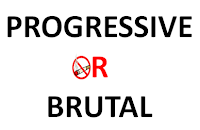Stop smoking, yes, I do! But how to do it ?
The sudden and complete stop it is the only solution, or can we envisage a gradual decline?
- Is the phasing better?
- Twice fewer cigarettes = 3 times more likely to quit smoking
- Tobacco reduction: Recommended by authorities
Around us when says he wants to quit, everyone has advice. Notably, among the sudden stop overnight and the gradual decrease in the number of daily cigarettes, opinions are often shared.
But scientifically, are there valid arguments on this? These include the first study on the subject published in the international journal Addiction.
Twice fewer cigarettes = 3 times more likely to quit smoking
These are the results of a US survey of more than 2,000 people surveyed at regular intervals on their smoking habits and their quit attempts. According to their findings, reduce tobacco consumption significantly increases the chances of stopping smoking later.
A halving of its cigarette smoking triples the chances of quitting smoking permanently in the two years following. With a reduction of between one quarter to one half, the chances of quitting in the near future are multiplied by 1.6. In addition, first reducing the number of cigarettes smoked increases the chances of final judgment.
Thus, if the brutal and final judgment is advisable to cut off the vicious circle of dependency, it can be tedious for some. In this case, a gradual decrease in the number of cigarettes may very well be a suitable solution, which is also closer to each successful attempt.

